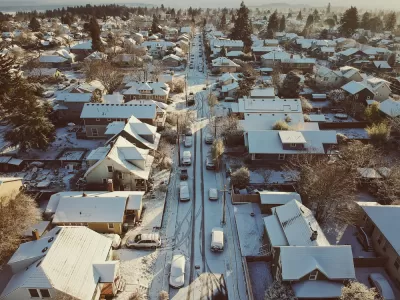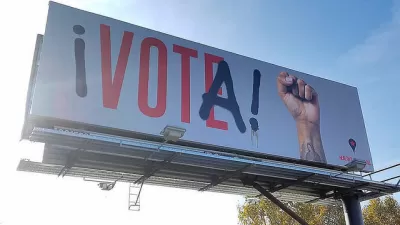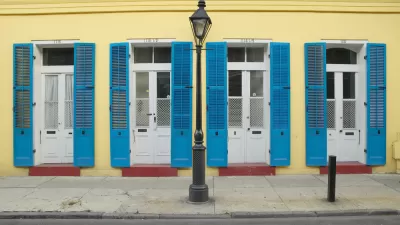The authoritative report on the state of property taxes in the United States was released earlier this month.

The Lincoln Institute of Land Policy and the Minnesota Center for Fiscal Excellence released the annual "50-State Property Tax Comparison Study" in June, exploring the key factors influencing property taxes, and "providing a comprehensive analysis of effective property tax rates—the tax paid as a percentage of market value—in 123 cities in every U.S. state and Washington, DC."
Will Jason writes an article to highlight some of the findings of the 2020 edition of the annual report, focusing especially on the disparities in property tax rates in some places.
In Los Angeles, for example, "someone who has owned a median-priced home for 14 years—the average length of ownership in the city—paid about $4,400 in property taxes last year, or about $3,600 less than a new owner of an identical home, who paid nearly $8,000," according to Jason. "This gap between the tax bills for new and established homeowners grew by $400 last year alone, and has increased by $1,500 in the past four years."
"Los Angeles is one of 29 large cities included in the report where assessment limits cap annual growth in the assessed value of individual properities [sic]," according to the article. In all of the cities, the disparities in property tax burden between new homeowners and more tenured homeowners has grown quickly in recent years.
The report also includes the annual rankings of the cities in the country with the highest and lowest effective property tax rates for both residential and commercial properties. In 2019, the cities with the highest effective property tax rate on a median value home were listed as follows:
- Aurora, Illinois
- Bridegport, Connecticut
- Newark, New Jersey
- Detroit, Michigan
- Portland, Oregon.
The cities with the lowest tax rates, measured as the lowest effect property tax rate of the median value home:
- Cheyenne, Wyoming
- Denver, Colorado
- Charleston, South Carolina
- Boston, Massachusetts
- Honolulu, Hawaii
FULL STORY: Fifty-State Study Shows Property Tax Inequities from Assessment Limits Continue to Grow

Alabama: Trump Terminates Settlements for Black Communities Harmed By Raw Sewage
Trump deemed the landmark civil rights agreement “illegal DEI and environmental justice policy.”

Study: Maui’s Plan to Convert Vacation Rentals to Long-Term Housing Could Cause Nearly $1 Billion Economic Loss
The plan would reduce visitor accommodation by 25% resulting in 1,900 jobs lost.

Planetizen Federal Action Tracker
A weekly monitor of how Trump’s orders and actions are impacting planners and planning in America.

Waymo Gets Permission to Map SF’s Market Street
If allowed to operate on the traffic-restricted street, Waymo’s autonomous taxis would have a leg up over ride-hailing competitors — and counter the city’s efforts to grow bike and pedestrian on the thoroughfare.

Parklet Symposium Highlights the Success of Shared Spaces
Parklets got a boost during the Covid-19 pandemic, when the concept was translated to outdoor dining programs that offered restaurants a lifeline during the shutdown.

Federal Homelessness Agency Places Entire Staff on Leave
The U.S. Interagency Council on Homelessness is the only federal agency dedicated to preventing and ending homelessness.
Urban Design for Planners 1: Software Tools
This six-course series explores essential urban design concepts using open source software and equips planners with the tools they need to participate fully in the urban design process.
Planning for Universal Design
Learn the tools for implementing Universal Design in planning regulations.
Caltrans
Smith Gee Studio
Institute for Housing and Urban Development Studies (IHS)
City of Grandview
Harvard GSD Executive Education
Toledo-Lucas County Plan Commissions
Salt Lake City
NYU Wagner Graduate School of Public Service





























